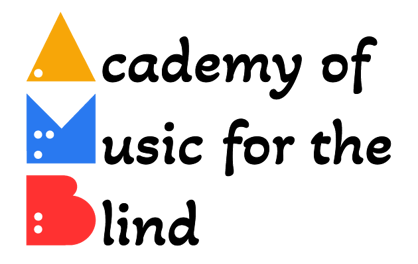
Academy of Music for the Blind
AMB is dedicated to addressing the unique talents and challenges of blind youth by developing their musical, creative, cognitive, physical and social skills through education in music and the performing arts. The development of their innate talents allows our students to integrate into mainstream educational and workplace settings, while inspiring and contributing to the larger community.
Dorothy was born blind, but from an early age, she demonstrated an extraordinary gift for music. Her incredible ear for melody, rhythm, and harmony made it clear that music would play a pivotal role in her life. At the age of eight, Dorothy joined AMB. Over time, her natural talent, coupled with her determination, allowed her to flourish.
Throughout her years at AMB, Dorothy not only excelled academically and artistically, but she also found a sense of belonging within a supportive and close-knit community. It was at AMB that she built lasting friendships with others who shared similar experiences, struggles, and dreams. These friendships became an essential part of her journey, providing her with the emotional and social support needed to navigate her challenges and celebrate her successes.
In addition to her artistic development, Dorothy's time at AMB laid a strong foundation for her future. She cultivated not only musical expertise but also vital skills in leadership, collaboration, and resilience. This solid foundation paved the way for her continued academic and professional success. Now, at 17 years old, Dorothy is a freshman at UCLA, where she is pursuing her dreams in a highly competitive environment. She has proven that with hard work and perseverance, even the most daunting obstacles can be overcome.
As part of AMB's innovative Transition Program, Dorothy is now one of the blind teachers who helps guide and inspire the next generation of students. Through her role as a music teacher, she plays an integral part in AMB's mission of “blind teaching the blind.” This program provides an opportunity for experienced, blind musicians like Dorothy to pass on their knowledge, mentorship, and encouragement to younger students, empowering them to reach their full potential. Dorothy’s journey is a testament to the powerful role music & performing arts education plays in our children's lives. And for blind youth, AMB is where they find what every child needs: community.
Financials
Programs
CORE PROGRAM
AMB is dedicated to providing a comprehensive music and performing arts education to all talented blind students regardless of their economic status. Especially for blind children, the skills they learn to gain literacy in music can form the foundation for most of their future academic achievements. The higher levels of instruction provide a major contribution to leveling the playing field for blind college students and working musicians. The music curriculum includes the following classes: Training in acoustic instruments: piano, guitar, winds, percussion & voice. Braille music reading, ear training & solfege. Arranging and recording taught both traditionally and with the aid of accessible computer recording applications. Computer Literacy including training in using screen reading software. Recording & audio engineering. Movement, Mobility & Dance. Public Speaking & Drama. Creativity & Imagination Development. Community Inclusion. Social & Living Skills. Academic Tutoring to assist students in their current school studies.
TRANSITION PROGRAM
Blind youth continually encounter educational and cultural challenges that make it much more difficult for them to develop their potential. AMB’s Transition Program prepares our high school students for the challenges of independent living and post-secondary education. The curriculum includes, technology, independent living, navigation skills, physical comportment, social & speaking skills, interview skills, student teaching & mentoring, and becoming an AMB teacher.
TEACHER TRAINING PROGRAM
AMB’s Teacher Training Program is designed to educate professional teachers in the special needs of blind students. The information and skills provided will enable teachers to successfully integrate blind music students into existing music classes.
SUPPORTING STEM STANDARDS
Because of the many benefits of Arts Education, the government’s STEM standards (Science, Technology, Engineering and Math) have been expanded to incorporate the Arts: STEAM (Science, Technology, Engineering, Arts and Math). Extensive research has demonstrated that arts education: Engages students in learning. Contributes to higher test scores in every subject area. Reduces truancy and dropout rates. Helps prepare students for the expectations of the twenty-first-century workforce, which include the ability to innovate, communicate, and collaborate. Unfortunately, even though arts education in dance, music, and theater is mandated in the State Education Code, this code does not mandate schools to follow these content standards, which leaves the implementation of arts education to the discretion of each school district. While privately funded, high quality arts programs have been maintained in wealthier school districts, a child’s access to arts education should not be predicated by where they happen to live. In addition, most school districts are beyond their depth when trying to integrate their visually impaired students into whatever art programs they do have available. That’s where AMB is providing an invaluable service to school districts. Our graduating students are already making their mark in film/video audio editing, professional music performing, and theatre. The sky is the limit for most children, and AMB is proud to be working hand-in-hand with school districts in preparing our students for the twenty-first century workforce.
PARENT ADVOCACY WORKSHOPS
Parent advocacy workshops. Educating parents and families on how they can advocate for their children vis-a-vis the public school system, state rehab organizations, and regional centers.